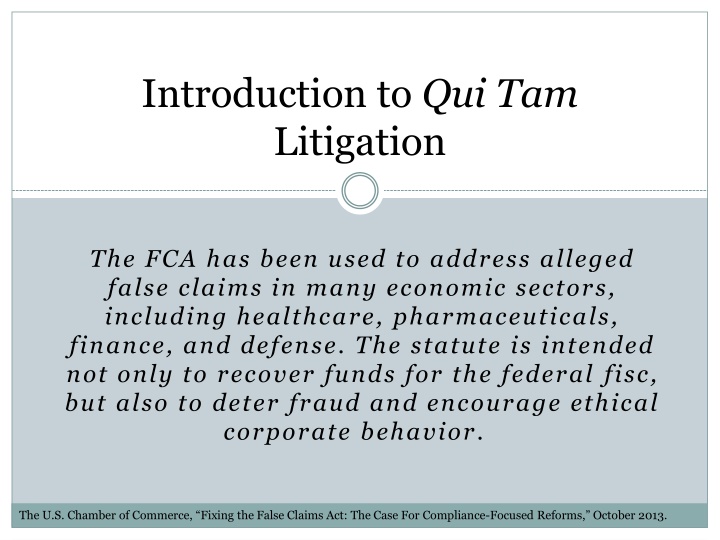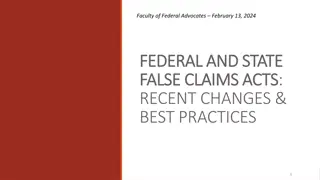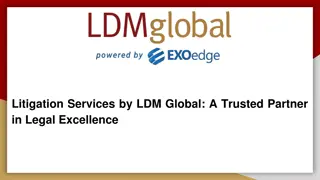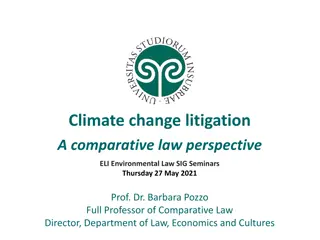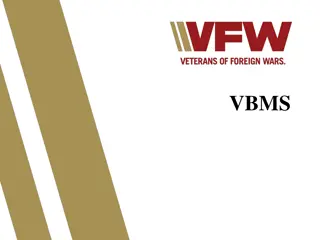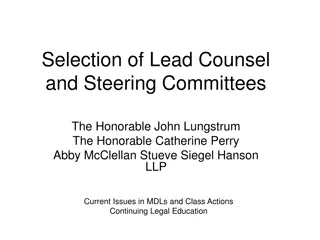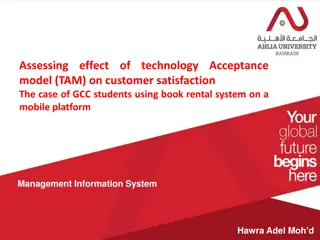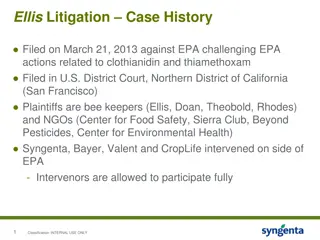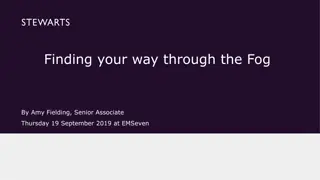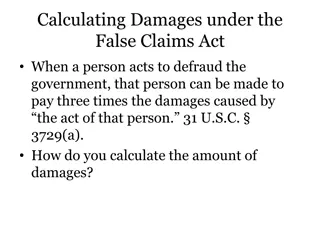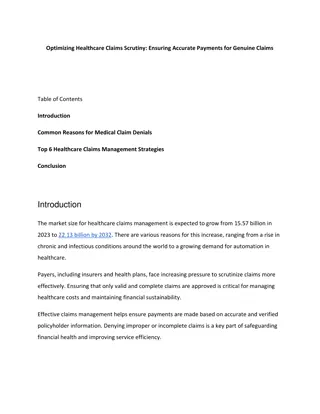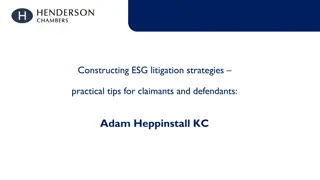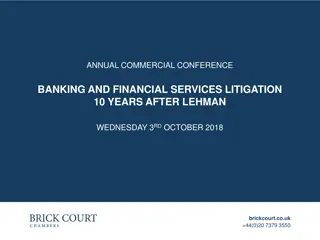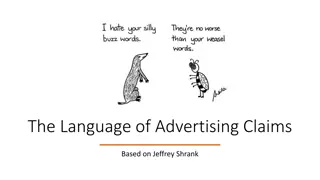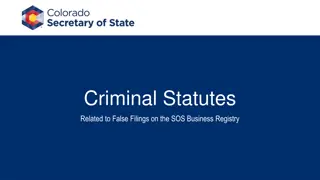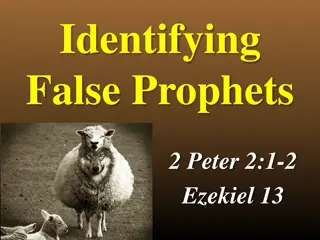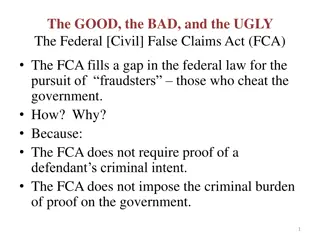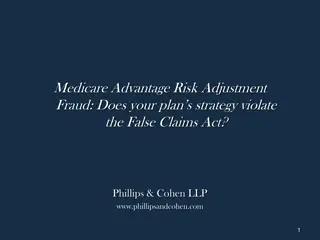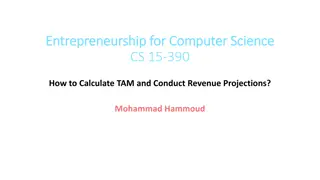Overview of Qui Tam Litigation and the False Claims Act
Qui tam litigation under the False Claims Act (FCA) allows private citizens to bring civil actions on behalf of the government to address alleged false claims in various sectors. The FCA prohibits knowingly presenting false claims and provides penalties for such actions, including civil penalties and damages. Additionally, the FCA prohibits retaliatory actions against individuals involved in exposing fraudulent activities.
Download Presentation

Please find below an Image/Link to download the presentation.
The content on the website is provided AS IS for your information and personal use only. It may not be sold, licensed, or shared on other websites without obtaining consent from the author.If you encounter any issues during the download, it is possible that the publisher has removed the file from their server.
You are allowed to download the files provided on this website for personal or commercial use, subject to the condition that they are used lawfully. All files are the property of their respective owners.
The content on the website is provided AS IS for your information and personal use only. It may not be sold, licensed, or shared on other websites without obtaining consent from the author.
E N D
Presentation Transcript
Introduction to Qui Tam Litigation The FCA has been used to address alleged false claims in many economic sectors, including healthcare, pharmaceuticals, finance, and defense. The statute is intended not only to recover funds for the federal fisc, but also to deter fraud and encourage ethical corporate behavior. The U.S. Chamber of Commerce, Fixing the False Claims Act: The Case For Compliance-Focused Reforms, October 2013.
What is a qui tam? 2 Qui tam is an abbreviated version of the Latin phrase qui tam pro domino rege quam pro se ipso in hac parte sequitur, meaning "[he] who sues in this matter for the king as well as for himself. Qui tam cases are brought pursuant to the False Claims Act (FCA), which allows private citizens with knowledge of fraud to bring civil actions on behalf of the Government and to share in any recovery. The FCA is the Government s most important tool to uncover and punish fraud against the United States.
What does the FCA prohibit? 3 The FCA, 31 U.S.C. 3729(a)(1), provides that a person who (A) knowingly presents, or causes to be presented, a false or fraudulent claim for payment or approval (B) knowingly makes, uses, or causes to be made or used, a false record or statement material to a false or fraudulent claim; (C) conspires to commit a violation of subparagraph (A), (B), (D), (E), (F), or (G); (G) knowingly makes, uses, or causes to be made or used, a false record or statement material to an obligation to pay or transmit money or property to the Government, or knowingly conceals or knowingly and improperly avoids or decreases an obligation to pay or transmit money or property to the Government, is liable to the Government for a civil penalty for each such claim, plus three times the amount of damages sustained by the Government because of the false and/or fraudulent claim.
What does the FCA prohibit? (contd) 4 The FCA also prohibits retaliatory actions against individuals. Any employee, contractor, or agent shall be entitled to all relief necessary to make that employee, contractor, or agent whole, if that employee, contractor, or agent is discharged, demoted, suspended, threatened, harassed, or in any other manner discriminated against in the terms and conditions of employment because of lawful acts done by the employee, contractor, agent or associated others in furtherance of an action under this section or other efforts to stop 1 or more violations of this subchapter. 31 U.S.C. 3730(h)
Introduction to Qui Tam Litigation QUI TAM PROCEDURES
Step One: Pre-filing Disclosure Statement 6 The FCA requires relators to disclose the allegations of fraud prior to filing a complaint in order to qualify as an original source in the event that the fraud has already been publicly disclosed. Pre-filing disclosures explain the fraudulent scheme, as well as the statutes and regulations that the defendant violated. They also provide the Government with background on relators. Sent to the AUSA, DOJ, and the AG offices in the states named in the action. Exhibits are not generally sent with the pre-filing disclosure.
Step Two: Original Disclosure and Complaint 7 We wait at least one week to send the original disclosure and file the complaint. The original disclosure is very similar to the pre-filing disclosure in form and substance but fulfills a different requirement under the FCA. We submit all referenced exhibits and all other evidence regarding the fraud with the original disclosure. All complaints are filed under seal and served on the AUSA, DOJ, and AGs.
Step Three: The Government Investigates 8 Once the complaint has been filed, it remains under seal while the Government investigates. The defendant does not know the identities of the whistleblower it does not even know there is a lawsuit while it is under seal. The Government meets with the relator to get more details on the allegations and evidence, as well as information on witnesses to interview and documents to request from the defendant. This is called a relator interview.
Step Three: The Government Investigates 9 Relator interviews: Scheduled within 2 or 3 months of filing Attendees include AUSA, DOJ attorney, AG s office (if applicable), OIG attorney from the affected government agency, and investigators Purpose is for Government to learn what it needs to know in order to investigate the fraud similar to meeting with our office to discuss the potential case. The format is generally Q&A and covers background on relators, how you learned of fraud, background on the defendant, how the fraud worked, evidence gathered and/or available, and potential witnesses. We provide all evidence to the Government when we file the case, and we provide a witness list either before or at the interview.
Step Three: The Government Investigates (Contd) 10 The Government usually issues civil investigative demands (CIDs), which are like subpoenas. The Government will interview witnesses and may also take Examinations Under Oath (EUOs), which are similar to depositions. The Government may ask the Court to partially lift the seal, which enables it to disclose the suit to the defendant and potentially gain more leverage. The relator s name may be redacted. Some cases settle during the investigation stage.
Step Four: Intervention or Declination 11 If the Government intervenes: The case is unsealed. The Government files its own complaint. The Government s causes of action supersede the relator s causes of action to the extent that they overlap. The Government litigates its causes of action. We provide support. Relators are entitled to a share of 15 25% of the amount recovered in intervened cases.
Step Four: Intervention or Declination (Contd) 12 If the Government declines to intervene: The Government files a notice of declination. We may decide not to pursue the action. If we pursue the action, the Court unseals the suit and orders the relator to serve the complaint on the defendant. The defendant will then file a motion to dismiss or an answer to the complaint. If the judge denies the motion to dismiss, the defendant will file an answer if they have not done so. The case will then proceed through discovery, summary judgment briefing, and trial. Relators are entitled to a share of 25 30% in non-intervened cases.
Introduction to Qui Tam Litigation WHAT RELATORS SHOULD AND SHOULD NOT DO
What Relators Should and Should Not do 14 DO be patient and persistent. It may take the Government several years to fully investigate the fraud and decide whether to intervene. DO keep track of contributions you ve made to the case. It will assist with advocating for a larger relator s share in the event of recovery. DO NOT discuss the case with anyone who is not a relator. Maintaining the integrity of the seal is vital to protecting the Government s ability to investigate the fraud. Cases are sealed by order of the court, and discussing a sealed matter is a violation of a court order. It may also be grounds for dismissal. DO NOT actively investigate the fraud while the case is under seal. For example, do not interview potential witnesses. It is the Government s role to investigate. Our office will continue to provide information to the Government to the extent that new information comes to light.
Questions? 15 Image courtesy of Carlos Doroteo
